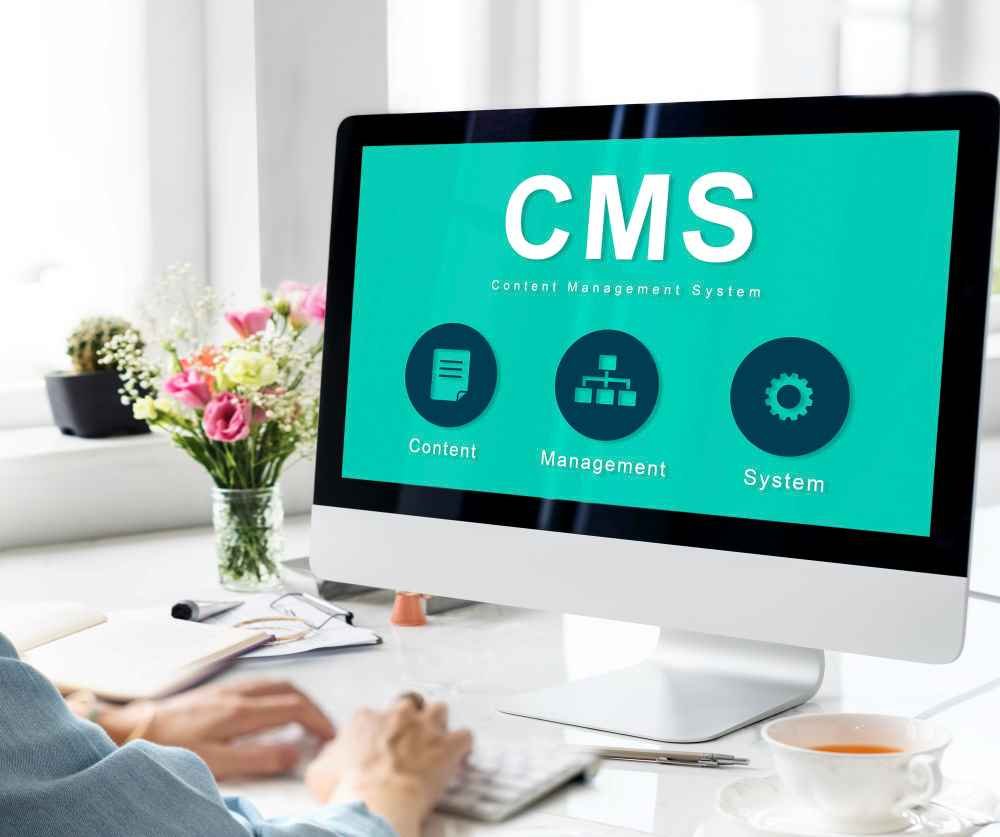Boost Your Business Efficiency: Top Content Management Systems for Small Enterprises
In today’s digital age, having an online presence is crucial for any small business. But managing a website can be challenging, especially if you’re not tech-savvy. This is where Content Management Systems (CMS) come in. A CMS is a tool that helps you easily create, manage, and update your website without needing to know how to code.
Think of a CMS like a digital assistant for your website. It helps you keep everything organized, makes your business look professional, and saves you a lot of time. This guide will introduce you to some of the best CMS options available for small businesses. We’ll explain how each one works and how it can help your business grow and succeed.
Why Content Management Systems Matter

As a small business owner, you might have limited time and resources to manage your website. This is where a Content Management System (CMS) can be incredibly helpful.
A CMS is like a handy tool that makes running your website much easier. Here’s why it matters:
- Saves Time and Effort: With a CMS, you can quickly update your website without needing any technical skills. Whether you want to add new products, update business hours, or post a blog, a CMS makes it simple.
- Consistent Branding: A CMS helps keep your website looking professional and consistent. This means your customers will always recognize your brand, which builds trust and loyalty.
- Valuable Insights: Many CMS platforms come with built-in analytics. This means you can see how many people visit your site, what they look at, and how long they stay. These insights help you make better business decisions and understand what your customers want.
In short, a CMS can make your life easier by saving you time, helping you maintain a professional appearance, and providing useful information to grow your business.
Top CMS Choices for Small Businesses

Choosing the right Content Management System (CMS) can make managing your website much easier. Here are some of the best CMS options for small businesses, each with unique features to help you succeed.
WordPress
WordPress is the most popular CMS in the world, used by over 40% of all websites. Here’s why it’s great for small businesses:
- User-Friendly: It’s easy to use, even if you’re not tech-savvy.
- Plugins: You can add many features to your site, like contact forms or online stores, using plugins.
- Customization: You can make your website look exactly how you want.
- SEO Tools: Helps your website show up in search engines like Google.
- Security: Keeps your site safe from hackers.
Shopify
Shopify is perfect if you want to sell products online. Here’s why:
- Complete Online Store: Everything you need to run an online shop, including accepting payments.
- Inventory Management: Helps you keep track of your products.
- Marketing Tools: Helps you promote your products.
- Ease of Use: Simple to set up and manage.
- Scalability: Can grow with your business as you add more products.
Wix
Wix is known for its simplicity and design flexibility. Here’s why small businesses love it:
- Drag-and-Drop Builder: Create your website by dragging and dropping elements, no coding needed.
- Templates: Choose from many professional-looking templates.
- SEO Tools: Helps your website rank better in search engines.
- Marketing Solutions: Built-in tools to help you market your business.
Joomla
Joomla is more advanced and suited for those who are a bit more tech-savvy. Here’s what it offers:
- Customization: Highly customizable for complex websites.
- Multilingual Support: Great for websites in multiple languages.
- Extensions: Powerful add-ons to expand your website’s functionality.
- Flexibility: Suitable for a wide range of websites, from simple to complex.
Squarespace
Squarespace is ideal if you want a beautifully designed website with powerful e-commerce features. Here’s why:
- Design Templates: Stunning templates to make your website look professional.
- E-commerce: Sell products online with ease.
- Marketing Tools: Built-in tools to help you attract customers.
- Analytics: See how your website is performing.
- Secure Hosting: Reliable and secure hosting to keep your site running smoothly.
Each of these CMS options has something unique to offer. Whether you need a simple website or a full-fledged online store, there’s a CMS that’s right for your small business. Choose the one that best fits your needs and watch your online presence grow!
Benefits of Using a CMS

Using a Content Management System (CMS) offers several advantages for small business owners, especially those with limited resources and no technical expertise. Here’s how a CMS can benefit your business:
Cost-Effective
- Affordable Plans: CMS platforms usually offer affordable pricing plans. This means you don’t need to spend a lot of money on expensive web development services.
- Budget-Friendly: Since the costs are lower, it’s easier to manage your budget, which is important for small businesses.
Time-Saving
- Easy Updates: A CMS allows you to quickly update your website content without needing any technical skills. Whether it’s adding new products, updating prices, or posting a blog, it’s all easy to do.
- Focus on Growth: By saving time on website management, you can focus more on running your business and planning for growth.
Enhanced SEO
- Better Search Rankings: Most CMS platforms come with built-in SEO (Search Engine Optimization) tools. These tools help improve your website’s visibility on search engines like Google.
- More Traffic: Higher visibility means more people will find your website, leading to increased traffic and more potential customers.
Scalability
- Grows with Your Business: As your business grows, your CMS can grow with you. You can easily add more storage, advanced features, or additional plugins to meet your needs.
- Adaptability: A CMS is flexible and can adapt to your changing business requirements, making it a long-term solution for your online presence.
Using a CMS is a smart choice for small business owners. It’s cost-effective, saves you time, helps improve your search engine rankings, and can grow with your business. With a CMS, managing your website becomes much easier, allowing you to focus on what you do best: running your business.
Key Features to Look for in a CMS

When choosing a Content Management System (CMS) for your small business, certain features are essential. Here’s what to look for:
User-Friendly Interface
- Easy to Use: The CMS should be simple to navigate, even if you’re not tech-savvy.
- No Extensive Training Needed: You should be able to manage your website without needing a lot of training or technical knowledge.
Customization Options
- Templates: A good CMS offers a variety of templates that you can use to design your website.
- Flexible Design: You should be able to customize these templates to make your website look unique and reflect your brand’s identity.
Security Measures
- Protect Your Website: The CMS should have strong security features to keep your website safe from hackers and other cyber threats.
- Regular Updates: It should offer regular updates and security patches to ensure your website remains secure over time.
Integration Capabilities
- Works with Other Tools: The CMS should integrate easily with other tools and platforms you use, like customer relationship management (CRM) systems, email marketing services, and social media.
- Seamless Operations: This ensures that all your business tools work together smoothly, making your operations more efficient.
Choosing a CMS with these key features will help you manage your website more effectively. A user-friendly interface ensures you can navigate the system easily. Customization options let you create a unique and professional-looking website. Robust security measures protect your business from online threats, and integration capabilities ensure your CMS works well with other essential tools. By focusing on these features, you can find a CMS that will help your small business thrive online.
Understand This
Picking the right Content Management System (CMS) can make a big difference for your small business. Here’s how:
- Boost Efficiency: A good CMS makes it easier and faster to manage your website, saving you time and effort.
- Improve Online Visibility: With built-in tools for SEO, a CMS helps your website show up higher in search engine results, attracting more visitors.
- Enhance User Experience: A CMS allows you to create a professional and user-friendly website, which keeps your customers happy.
Some of the best CMS options for small businesses are WordPress, Shopify, Wix, Joomla, and Squarespace. Each of these platforms offers unique features to meet the needs of small business owners.
Ready to take your small business to the next level? Explore these top CMS options today. Find the one that fits your business goals, and start building a more efficient and successful online presence. By investing in the right CMS, you can unlock your small business’s full potential and watch it thrive.
